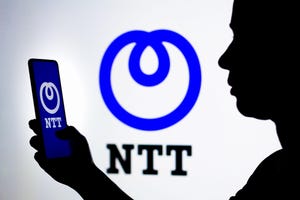Huawei, with Meng Wanzhou's involvement, allegedly used an 'unofficial' Hong Kong-based subsidiary called Skycom to trick US banks into clearing transactions for Huawei linked to companies in Iran.

The US has accused Meng Wanzhou, the CFO of China-based Huawei, of sanctions fraud, shedding more light on why the exec was arrested last Saturday, December 1, by Canadian authorities at the behest of its southern border neighbor, according to multiple reports.
Those details emerged Friday at a bail hearing in Vancouver for the Huawei Technologies Co. Ltd exec, who is also the daughter of company Founder Ren Zhengfei. (See Canada Arrests Huawei CFO – Report.)
According to The New York Times, the US alleges that Meng was personally connected to a scheme designed to "trick" US financial institutions into making transactions that violated US sanctions against Iran. Meng had "direct involvement" with Huawei's representation to banks, said John Gibb-Carsley, an attorney with Canada's Justice Department, per the report.
According to Gibb-Carsley, Huawei, with Meng's involvement, used an "unofficial subsidiary" in Hong Kong called Skycom Tech to conduct transactions in Iran and do business with telecom vendors there, in violation of US sanctions against Iran, between 2009 and 2014.
Gibb-Carsley claimed that Skycom employees used Huawei email addresses and possessed badges and used letterhead with the Huawei logo. Those two companies are believed to be one and the same, Gibb-Carsley claimed. "This is the crux, I say, of the alleged fraud," he said, according to The Wall Street Journal. Meng served on the board of Skycom from February 2008 to April 2009, the WSJ said, citing Hong Kong corporate records.
Gibb-Carsley said a warrant for her arrest was issued in the Eastern District of New York on August 22, and that a warrant was issued for Meng on November 30 when it was known she would change planes in Vancouver.
He characterized Meng as a flight risk if she was granted bail. Meng's attorney has offered two properties and a cash deposit to secure Meng's bail, and argued that she would not breach a court order, as doing so would "humiliate and embarrass her father who she loves," according to the NY Times, adding that a judge would rule on the bail request later today.
Huawei has slammed the arrest, denying knowledge of any wrongdoing by Meng. (See Canada Arrests Huawei CFO – Report and China Slams Huawei CFO's Arrest, Huawei 'Not Aware of Any Wrongdoing'.)
Per the BBC, Canadian Foreign Minister Chrystia Freeland provided assurances that "[d]ue process has been, and will be, followed in Canada."
If found guilty of the charges, Meng, 46, could face 30 years in prison. She is currently facing extradition to the US.
The arrest also comes five years ago after Reuters ran stories alleging that Huawei was using Skycom to funnel business to Iran. At the time, Meng held that her company was operating in Iran in compliance with US sanctions, the Times added, citing details from the hearing. Meng also said that Huawei's work with Skycom was part of normal business operations and that Huawei had since sold shares held in the Hong Kong-based company. In 2013, Huawei also told Reuters that the company had "established a trade compliance system" that followed all applicable laws and regulations, including those of the United Nations.
Going further back, in 2011 the WSJ reported that Huawei occasionally worked through Skycom, with Huawei responding then that the two were affiliated but that Huawei didn't have a stake in Skycom.
Tensions rising
Meng's arrest raised trade tensions between the US and China, and was learned of soon after the countries agreed to delay a US plan to raise tariffs on certain Chinese goods to 25% starting January 1, 2019, for 90 days while the two sides try to hammer out a long-term arrangement. (See US, China Agree to Delay Tariffs Hike .)
US President Donald Trump, meanwhile, took to Twitter to relay this terse update on the matter:
China talks are going very well!
— Donald J. Trump (@realDonaldTrump) December 7, 2018
The arrest and the trade tensions between the US and China expose telecom suppliers to different degrees, with some more exposed to them than others. (See Nokia Sitting Pretty After Week of Turmoil for Huawei, Ericsson and Ciena Positioned to Profit From Huawei Backlash – Analyst .)
And those strains have apparently brushed up against travel policies of certain US suppliers.
Cisco Systems Inc. (Nasdaq: CSCO), for example, warned employees not to travel to China, then quickly walked that back, according to the Nikkei Asian Review.
The publication, citing an internal memo, told employees on Wednesday to restrict "nonessential travel of US-based Cisco employees into China." Cisco then told the pub that the email was sent in error to some employees and that it "does not reflect Cisco policy." Cisco has been asked for further comment.
— Jeff Baumgartner, Senior Editor, Light Reading
Read more about:
AsiaAbout the Author(s)
You May Also Like











